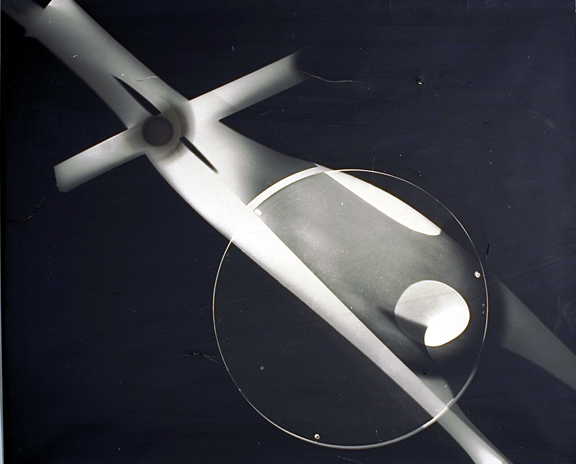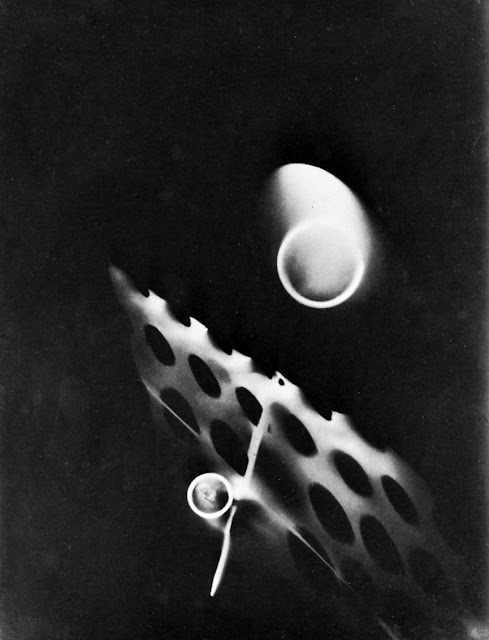László Moholy-Nagy (Hungarian, 1895-1946) was born in Bacsbarsod, Hungary. Injured during World War I, he turned to painting and made contact with the Budapest avant-garde in 1918. In 1922, Maholy-Nagy participated in the International Dada-Constructivist Congress in Weimar and began experiments in photography with his wife Lucia. Appointed master at the Bauhaus in 1923, he made his first film, Berliner Stilleden, in 1926. Although always a painter and designer, Moholy-Nagy became a key figure in photography in Germany in the 1920's. In 1928 Moholy-Nagy left the Bauhaus and traveled to Amsterdam and London. His teachings and publications of photographic experimentations were crucial to the international development of the New Vision. In 1937 he was invited to found the New Bauhaus in Chicago by the Association of Arts and Industries. Moholy-Nagy served as teacher and director there from 1937 until he died in 1946.

Photogram: Term Nagy coined for this technique. (An image made without a camera by placing objects directly onto the surface of a photo-sensitive material such as photographic paper and then exposing it to light) Artist/Photographer Man Ray was a little more egocentric when came up with his name for the technique ~ Rayographs
The illiterate of the future will be the person ignorant of the use of the camera as well as the pen. ~ Laszlo Moholy-Nagy
The photogram can be called the key to photography because every good photograph must possess the same fine gradation between the white and black extremes as the photogram. ~ Laszlo Moholy-Nagy
The enemy of photography is the convention, the fixed rules of 'how to do'. The salvation of photography comes from the experiment. ~ Laszlo Moholy-Nagy






























